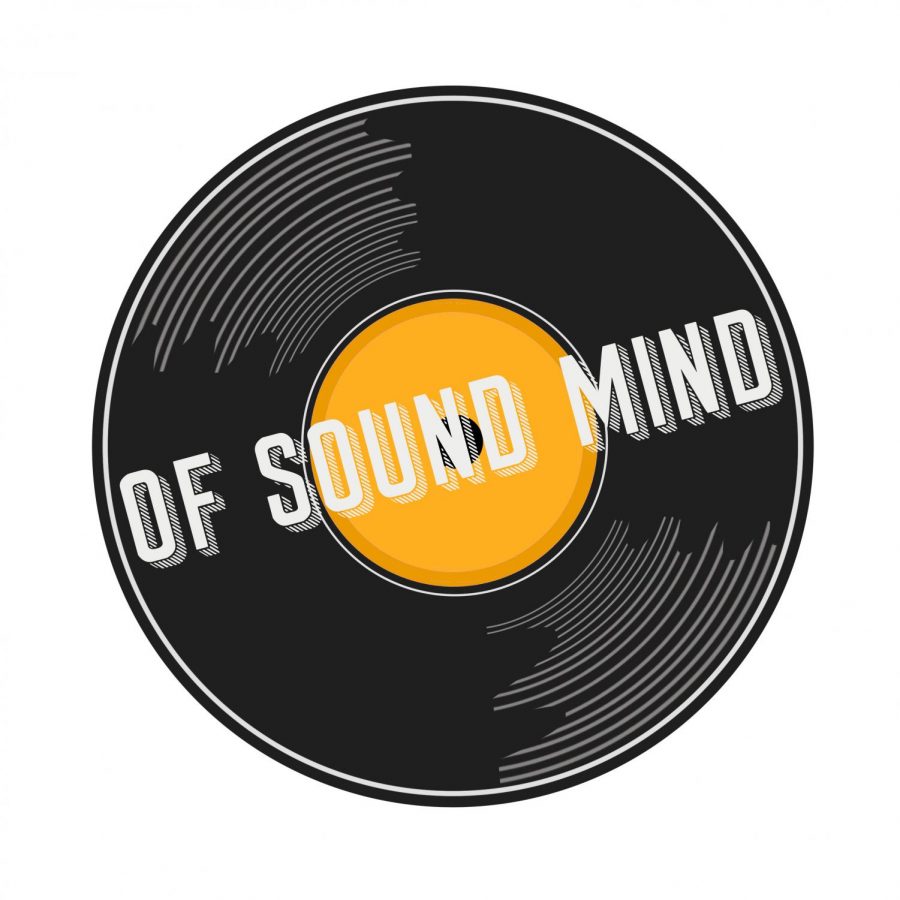Of Sound Mind | Jon Batiste’s ‘WE ARE’
Of Sound Mind is a biweekly blog about new albums, old albums, forgotten albums, overrated albums and any other type of listening experience from senior staff writer Lucas DiBlasi.
April 4, 2021
Due to my family’s enduring allegiance, I’ve seen quite a few episodes of “The Late Show with Stephen Colbert” over the years. It’s a good show, but I’ve always been a little more interested in the lanky piano-player-bandleader just offscreen to Colbert’s left.
Jon Batiste — pianist, songwriter and entertainer extraordinaire — came out with his fifth solo album, entitled “WE ARE,” on March 19. It spans a wide range of genres, inspirations and themes in a way that clearly displays Batiste’s subtle, nuanced talent for songwriting.
On “The Late Show,” Batiste and his band, Stay Human, play a catchy riff at the beginning and snippets of songs before and after commercial breaks, but it never felt like enough to me. Batiste sounds so interesting when he talks, and the little snippets of songs are tantalizing. I would pay money to listen to Stay Human continue to play, instead of enduring the endless commercials.
I always knew Batiste had to have some sort of backstory in order to get the gig on “The Late Show,” but it turns out it’s even more rich than I imagined. Batiste grew up in New Orleans as a member of a musical dynasty and graduated from the renowned Juilliard School conservatory. He’s also been nominated for two Grammys and won a Golden Globe.
Batiste wrote “WE ARE” in his “Late Show” dressing room over the course of just six days, which both makes complete sense given the musical and lyrical themes that tie the album together, and makes no sense in how incredible it is. Even though the album was mostly written and recorded before the pandemic and social unrest of 2020, the themes are prescient and applicable, as Batiste himself has pointed out.
One of the most interesting and refreshing aspects of Batiste’s new album is the way that it moves adeptly between genres, both between and within songs. The opening track, which is also the title track, moves from “Southern marching band culture to gospel to what I call ‘horror disco,’ all within the span of four minutes,” Batiste told Apple Music.
The title track takes a semi-religious tone, with Batiste looking to the stars for hope on “days when it’s hard,” and when the country is “in a war / blind in the dark.” The chorus, “we are / we are / we are the chosen ones,” does somehow manage to mix marching band music with horror, coming off as a declaration and a wish equally.
After the title track, the songs seem to move near-chronologically through Batiste’s life. He recounts advice from his dad before leaving for Juilliard on “TELL THE TRUTH” (that’s the advice, mostly), cries for a loss of innocence on “CRY” and draws on Black social music in the poppy, upbeat “I NEED YOU.”
The songs usually center on a relatively poppy style that draws on lots of influences — some songs are jazzy, some are funky and some come completely out of left field. “WATCHUTALKINBOUT” sounds like a manic video game soundtrack mixed with jazz and classic rap.
After the gorgeous “BOY HOOD,” a song that sounds like modern hip-hop and feels like growing up, the dramatic classical jazz piano piece “MOVEMENT 11” transitions into “ADULTHOOD.” The second half of the album is appropriately themed following this transition, dealing with politics, spirituality and sexuality.
“ADULTHOOD” sounds like it could’ve been on the highly sexual masterpiece of an album “Voodoo” by D’Angelo, except for the lyrics, which are about suddenly feeling like a grown-up. The sexual themes are introduced on the highly danceable “FREEDOM.”
“FREEDOM” isn’t explicitly sexual on the surface, but instead joyous. “When I move my body just like this / I don’t know why / but I feel like freedom,” Batiste sings, but as he describes, it’s a song about Black “sexuality and how people are represented. That’s what people like James Brown, or when we saw Elvis with the twist of the hips, did.”
At the end of the album, Batiste pays tribute musically and lyrically to music itself. On “SHOW ME THE WAY,” he sings through a list of his favorite musicians, including Ella Fitzgerald, Wu-Tang Clan and Thelonious Monk. The penultimate song, “SING,” is an ode to the ways that expressing yourself musically can lift your spirits — “When I can’t find the words / and everything starts to hurt / I’m done with this heavy heart / I let all my burdens off / And I sing.”
“WE ARE” is an accessible, rewarding album. It’s fun to listen to, relentlessly interesting and thematically dense. There are tons of contributors on the album, from some of Batiste’s friends like Trombone Shorty to the legendary Mavis Staples, making the album feel like a communal experience. Batiste’s virtuosity on the piano and in songwriting aren’t overstated, but nuanced — subtle and wonderful. “WE ARE” is a cohesive album that feels like the essence of Batiste as a musician and performer, and I give it a solid 8.5/10.
Lucas DiBlasi is a music composition and digital narrative and interactive design double major. Suggest the next album to review, critique this review or send anything else to LND28@pitt.edu.



